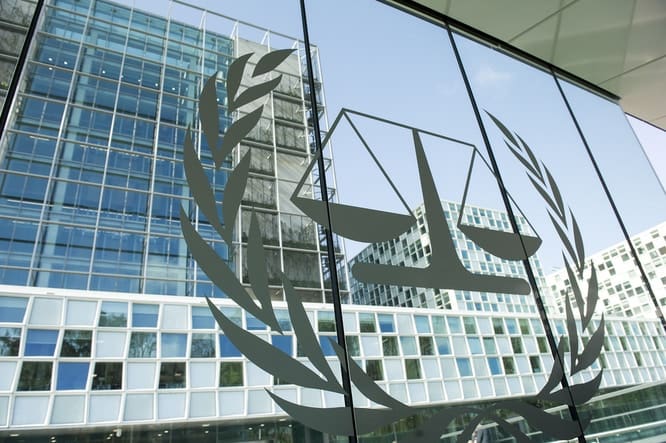The Ukraine War has provided a challenging time for the nations of the world and, particularly, for international law.
Since antiquity, far-sighted thinkers have worked on developing rules of behavior among nations in connection with war, diplomacy, economic relations, human rights, international crime, global communications, and the environment. Defined as international law, this “law of nations” is based on treaties or, in some cases, international custom. Some of the best-known of these international legal norms are outlined in the United Nations Charter, the Universal Declaration of Human Rights, and the Geneva Conventions.
International Law and Ukraine
The UN Charter is particularly relevant to the Russian invasion of Ukraine. Article 2, Section 4, perhaps the most important and widely-recognized item in the Charter, prohibits the “use of force against the territorial integrity or political independence of any state.” In Article 51, the Charter declares that “nothing in the present Charter shall impair the inherent right of individual or collective self-defense if an armed attack occurs against a member of the United Nations.”
Ukraine, of course, although partially or totally controlled by Russia or the Soviet Union during portions of its past, has been an independent, sovereign nation since 1991. That year, the Soviet Union, in the process of disintegration, authorized Ukraine to hold a referendum on whether to become part of the Russian Federation or to become independent. In a turnout by 84 percent of the Ukrainian public, some 90 percent of participants voted for independence. Accordingly, Ukraine was recognized as an independent nation. Three years later, in the Budapest Memorandum, Ukraine’s government officially agreed to turn over its large nuclear arsenal to Russia, while the Russian government officially pledged not only to “respect the independence and sovereignty and the existing borders of Ukraine,” but to “refrain from the threat or use of force” against that country. In 1997, Ukraine and Russia signed the Treaty on Friendship, Cooperation, and Partnership, in which they pledged to respect one another’s territorial integrity.
The Russian Military Assaults of 2014 and 2022
Despite these actions, which have the status of international law, the Russian government, in 2014, used its military might to seize and annex Crimea in southern Ukraine and to arm pro-Russian separatist groups in the nation’s eastern region, the Donbas. Although a Russian veto blocked a UN Security Council rebuke, the UN General Assembly, on March 27, 2014, passed a resolution (“Territorial Integrity of Ukraine”) by a vote of 100 nations to 11, with 58 nations abstaining, condemning the Russian military seizure and annexation of Crimea. Ignoring this condemnation of its behavior by the world organization, the Russian government incorporated Crimea into the Russian Federation and, in August, dispatched its military forces into the Donbas to bolster the beleaguered separatists. Over the following years, Russia’s armed forces played the major role in battling the Ukrainian government’s troops defending eastern Ukraine.
Then, on February 24, 2022, the Russian government, in the most massive military operation in Europe since World War II, launched a full-scale invasion of Ukraine. Although UN Security Council action was again blocked by a Russian veto, the UN General Assembly took up the issue. On March 2, by a vote of 141 countries to 5 (with 35 abstentions), it demanded the immediate and complete withdrawal of Russian military forces from Ukrainian territory. Asked for its opinion on the legality of the Russian invasion, the International Court of Justice, the world’s highest judicial authority, ruled on March 16, by a vote of 13 to 2 (with Russia’s judge casting one of the two negative votes) that Russia should “immediately suspend” its invasion of Ukraine.
The Illegality of Russia’s Annexation of Ukrainian Territory
In late September 2022, when the Kremlin announced that a ceremony would take place launching a process of Russia’s annexation of the Ukrainian regions of Donetsk, Luhansk, Kherson, and Zaporizhzhia, UN Secretary-General Antonio Guterres warned that “any annexation of a state’s territory by another state resulting from the threat or use of force is a violation of the principles of the UN Charter and international law.” Denouncing the proposed annexation, Guterres declared:
- It cannot be reconciled with the international legal framework.
- It stands against everything the international community is meant to stand for.
- It flouts the purposes and principles of the United Nations.
- It is a dangerous escalation.
- It has no place in the modern world.
Nevertheless, the following day, Russian President Vladimir Putin signed an accord to annex the regions, declaring that Russia would never give them up and would defend them by any means available.
In turn, the nations of the world weighed in on the Russian action. On October 12, 2022, the UN General Assembly, by a vote of 143 countries to 5 (with 35 abstentions), called on all nations to refuse to recognize Russia’s “attempted illegal annexation” of Ukrainian land.
Law Without Enforcement
What, then, after surveying this sorry record, are we to think about the value of international law? It is certainly useful for defining the rules of international behavior―rules that are essential to a civilized world. Addressing the UN Security Council recently, the UN Secretary General declared that “the rule of law is all that stands between peace and stability” and “a brutal struggle for power and resources.” Even so, although it is better to have agreed-upon rules rather than none at all, it would be better yet―indeed, much better―to have them enforced.
And therein lies the fundamental problem: Despite agreement among nations on the principles of international law, the major entities providing global governance―the United Nations and the International Court of Justice―lack the power to enforce them. Given this weakness at the global level, nations remain free to launch wars of aggression, including wars of territorial conquest.
Surely the Russian invasion of Ukraine should convince us of the need to strengthen global governance, thereby providing a firmer foundation for the enforcement of international law.


























